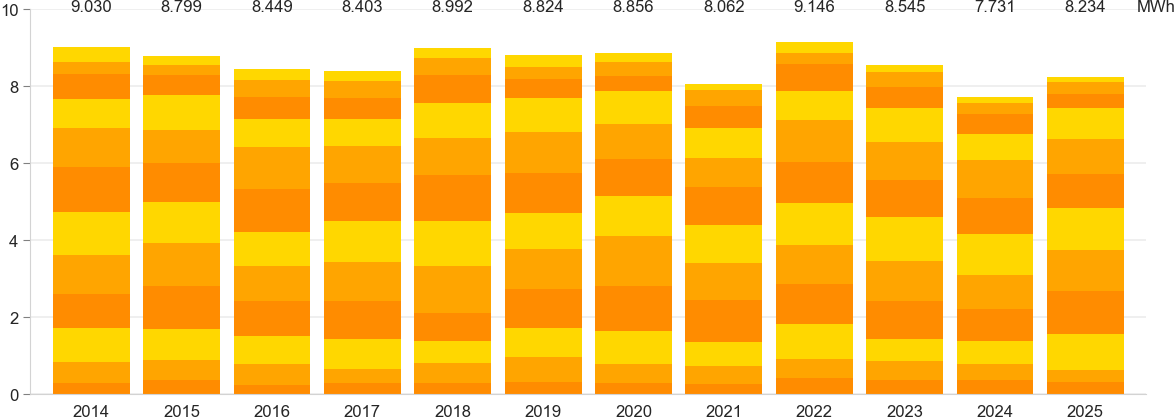The taps in our kitchen have been leaking a bit for a while, and we couldn't get any spare parts. They are over 25 years old, so we bit the bullet, and got some new taps. They look nice, and have ceramic disc valves, which have a nice sharp on/off action. So I should have been happy.
 |
| two sets of these new taps |
BUT. They turn on/off the wrong way! Each of the handles turns clockwise (right) to turn on and anti-clockwise (left) to turn off. I kept spraying myself with water when trying to turn them off, but turning them full on instead. The plumber who installed them for us agreed this was wrong, but couldn't do anything to fix it.
So I contacted the manufacturer, explaining the issue. They replied
As part of our Continuous Improvement programme the ceramic disc valves in some of our taps have been changed, this is to improve the life of your valves. Our previous customer feedback meant that this was the preferred way in which our customers wanted the handles to turn. This is not a manufacturing fault, but if you are unhappy with this change, alternative parts can be purchased to change the handle turn on your taps.
To assist you further can you please advise which way you would like the taps to turn?
Okay, so they can provide replacements, great. I was a bit surprised by the idea that their customer feedback indicated everyone wanted the taps to turn the wrong way, but, hey. I was also a bit flummoxed at the query: I had said which way the taps turn, and that it was wrong. Clearly I want them to turn the other way. I explained this, and sent along proof of purchase to get the warranty.
I then got the reply:
There is no industry standard as to which way a tap should turn, and our models do vary from tap to tap. This particular tap has always been manufactured in this way. I'm sorry I am unable to offer any valves that would fit your tap to change the handle turn.
Well, there might not be a de jure standard, but there is surely a de facto standard. And how come your previous email said you could provide replacements?
I muttered to my other half. He decided to contact them himself. He was also told there was no industry standard, and asked to provide proof of purchase. He did so, at which point he got the reply:
I have arranged for two sets of anti-clockwise turn on valves to fix this for you, these will be delivered by Royal Mail in 3-5 working days.
I can send an engineer to fit these parts for you free of charge under warranty.
What?!? Suddenly valves are available? Great! Yes, please send someone to fix them. (Okay, this is a bit feeble; we should be able to do it ourselves. But I was concerned they might be some weird design, being ceramic, and we might do something to void the warranty.)
The engineer arrived today, and swapped out the four old (wrong) valves for the new (correct) valves, in about ten minutes total. He mentioned we were by no means the first people he had done this for...
And I am now extremely happy with our new taps, with their crisp ceramic action, and that turn the right way.




















































